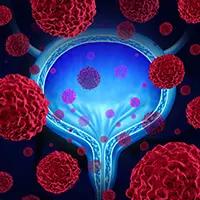Dr. Richard Finn on What's Next for Palbociclib After PALOMA in Breast Cancer
Richard Finn, MD associate professor of Medicine at the UCLA David Geffen School of Medicine, discusses what’s next for palbociclib following the PALOMA trials.
Richard Finn, MD associate professor of Medicine at the UCLA David Geffen School of Medicine, discusses what’s next for palbociclib following the PALOMA trials.
The FDA granted an accelerated approval to palbociclib as a frontline treatment for postmenopausal women with ER-positive, HER2-negative metastatic breast cancer, based on findings from the phase II PALOMA-1 trial.
PALOMA-2 was a randomized double-blind phase III trial designed to confirm the results of PALOMA-1. The study found that adding the CDK 4/6 inhibitor to letrozole reduced the risk of disease progression by 42% compared with letrozole alone in patients with ER-positive, HER2-negative advanced or metastatic breast cancer.
Based on the positives findings from both of these trials, palbociclib is being considered in the adjuvant setting, says Finn. There are studies looking at the combination of palbociclib and endocrine therapy in early-stage breast cancer.
What important question that should be addressed is if chemotherapy is still necessary in early stage-breast cancer, or the combination palbociclib and endocrine therapy would be enough, says Finn. The combination is very active, perhaps even more active than chemotherapy, he says.
A good adjuvant study would look at CDK 4/6 inhibitor plus endocrine therapy in patients who were high-risk for recurrence versus standard treatment, which include chemotherapy.
There are more conservation adjuvant studies ongoing, which hopefully will answer that question, says Finn.



